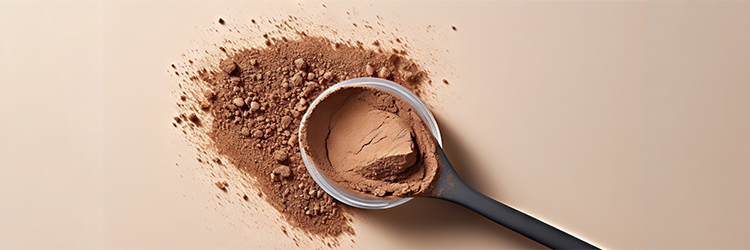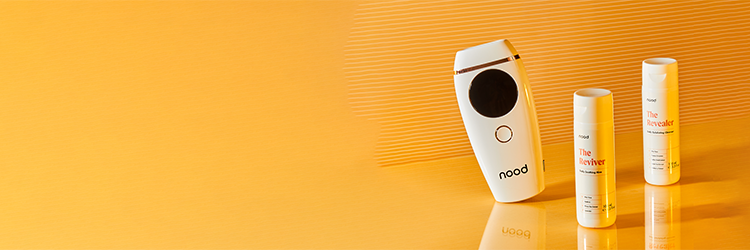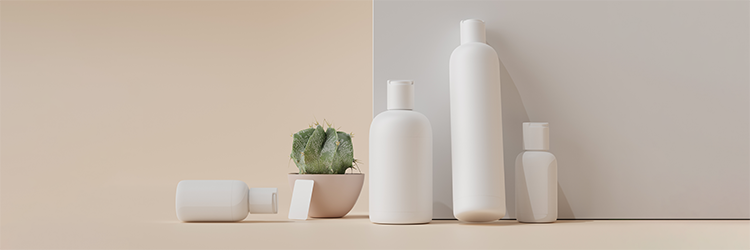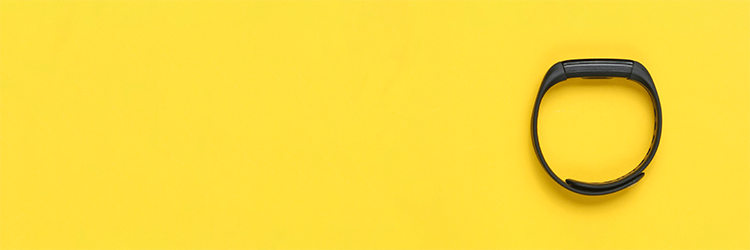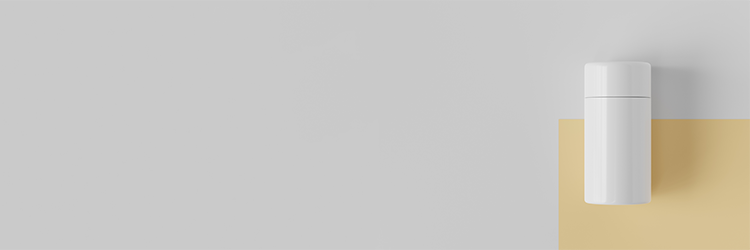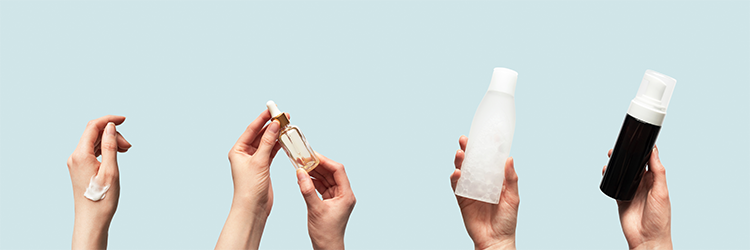
Disclaimer: None of the information in this article constitutes medical advice. All statements are merely the opinion of the writer(s). We recommend that patients follow their doctor’s guidance in regard to prescription medication.
Atarax is a prescription drug used for the treatment of anxiety and allergic itching. It’s approved by the Food and Drug Administration (FDA) to treat these conditions.
Atarax is the brand-name version of the drug, and the generic version is called hydroxyzine. These two names refer to the exact same active chemical compound, so we'll refer to them interchangeably throughout this article.
It’s uncommon for an antihistamine to be prescribed to treat anxiety, given that this class of drugs is typically only used for allergy symptoms, and is typically available over-the-counter (OTC) without requiring a prescription.
But is Atarax actually proven to be effective for anxiety reduction? Does it cause side effects? How do real users rate and describe the effects of the drug? And has it been discontinued?
In this article we’ll answer all of these questions and more, as we review clinical studies on Atarax to determine if it's effective for anxiety, and to document its side effects.
We'll feature real patient reviews and ratings of the drug, explain whether or not Atarax has been discontinued, and explain if the generic version is as effective as the branded version.
Was Atarax Discontinued?
According to a , Atarax has been discontinued and is not available for sale in the US.
It may still be available in other countries. It’s unclear why the medication was discontinued, and it doesn't appear to be due to safety concerns.
The FDA did not require that this drug be pulled from the market, so it seems more likely that the manufacturer simply removed Atarax from the market for business reasons.
We would not recommend purchasing Atarax in jurisdictions where it’s not sold by the manufacturer, because this may increase the risk of a patient receiving fake or altered medication.
Both of the other versions of this drug (hydroxyzine and Vistaril) appear to be available for sale in the US at the time of updating this article.
To see our current mental wellness picks, scroll down to the section of this article titled "Our Mental Wellness Picks."
Does Atarax Reduce Anxiety?
As we documented in our hydroxyzine for anxiety reviews article, there are a number of studies testing the effects of Atarax in anxious patients.
A 1994 on Atarax for the treatment of anxiety (proving how long this drug has been on the market) found that it worked better than a placebo pill both after one week and after four weeks.
Given that many anxiety medications take weeks to start working, it's a good sign that Atarax appears to work rapidly.
A analyzed five clinical trials on Atarax for anxiety.
The study authors documented that Atarax reduced symptoms of generalized anxiety disorder (GAD), and the drug was similarly effective to other pharmaceutical treatments for anxiety such as benzodiazepines (benzos).
Given that benzodiazepines may have more addictive potential, this is a promising sign.
We located that trialed Atarax in a patient experiencing a panic attack.
Not only was Atarax effective at mitigating the active panic attack, but the patient didn't experience any panic attacks in the month following, even though he had been experiencing three panic attacks per day prior.
We will conclude from the available research that Atarax is successful for treating anxiety, which is unsurprising given that the drug is approved by the FDA for that indication.
Does Atarax Cause Side Effects?
Atarax does cause side effects in some patients, but its side effect profile appears to be less severe than many prescription anxiolytic (anxiety-reducing) drugs.
shows that 52% of Atarax patients experienced side effects while taking the drug, compared with only 35% of those taking placebo pills.
This suggests a "true" side effect rate of 17%.
Those taking Atarax were 14% more likely to experience sleepiness than those taking placebo, and those taking Atarax were also more likely to experience dry mouth and weight gain (9% more and 2% more, respectively).
Atarax’s Drug Facts label does not contain a “black box” warning, which is reqired by the FDA when a medication can cause severe and life-threatening side effects.
As an example, we recently reviewed a prescription drug called Linzess with a black box warning indicating the drug can cause severe dehydration in children.
Overall, the severity of Atarax side effects seems less worrisome when compared to other medications used to treat anxiety, in our opinion.
YouTuber Tries Atarax
One of the most popular YouTube reviews of Atarax comes from a creator named Torie Brame.
The video title states "hydroxyzine," but keep in mind that's the generic form of the drug, and effectively the same thing:
Is the Generic Version Cheaper?
As referenced previously, hydroxyzine is the generic version of the drug, while the branded version is called Atarax.
Patients are often curious about potential differences in efficacy and price between the two versions.
Generic drugs should be equally effective to brand-name drugs, but often have significantly reduced retail prices.
An published in the PLOS Medicine journal compared whether branded or generic drugs were more effective, and the study authors reported that generic drugs were just as effective on average.
At the time of updating this article, the brand-name version of Atarax has been discontinued.
The generic version of Atarax currently costs $5.90 at Cost Plus Drugs for a 30-count bottle.
Atarax vs. Vistaril
Vistaril is another allergy drug with sedative properties, and it has a similar molecular structure to Atarax.
The active ingredient in Atarax is hydroxyzine hydrochloride, while the active ingredient in Vistaril is hydroxyzine pamoate.
Patients are often curious about which drug has superior efficacy.
Unfortunately, there don't appear to be any comparative studies testing which drug is more effective.
Because both were approved by the FDA, we would consider them equivalently effective and would not recommend one over the other.
Atarax is sold in liquid and capsule form, while Vistaril is formulated as a liquid and tablet. Tablet and liquid formulations may be safer for some elderly patients who have trouble swallowing capsules.
Does Atarax Improve Sleep?
Many antihistamines such as Atarax cause sleepiness as a side effect.
Using Atarax for the treatment of sleep disorders would be considered an off-label use, which is not approved by the FDA.
The potential sedative effect of Atarax may be a secondary benefit in patients with both anxiety and sleep disorders.
Some clinical studies suggest that Atarax can successfully treat insomnia in hospital settings, but we haven't found any studies proving that the medication is effective in healthy, non-anxious patients with insomnia.
A on drugs used for insomnia reported the following: “there are few data to support [Atarax’s] efficacy or safety for this indication.”
Patients Rate Atarax
Drugs.com is a website that allows prescription medication patients to rate and review the drugs they're taking.
We cannot verify the accuracy or authenticity of any reviews on this site.
At the time of updating this article, Atarax has been reviewed over 100 times on Drugs.com, and has a lower average review rating for anxiety (5.8/10) than for allergies (8.1/10).
A top positive review of Atarax for anxiety is written by a user named “Sleepymama” who gave the drug a 9/10 rating:
“I love this medication. I was prescribed atarax at 35 weeks pregnant for insomnia and panic attacks/GAD. I was having crazy nightmares before I started taking it as well. The first few times I took it, it made me very tired but eventually that stopped happening- it makes it easy for me to fall asleep but not overly tired, and I’m not groggy in the morning.”
A top negative review of Atarax for anxiety comes from a user named “Sam” who gave the drug a 2/10 rating:
“I took 1/2 tablet for the first time around 6:15 pm and I was out cold by 7 pm. I slept until 7:45 am and had to get up for an appointment. I could barely drag myself out of bed and if I hadn’t only been going 2 miles from home, I wouldn’t have been able to drive myself. I came home and slept on and off til about 3 pm, when I finally started to feel more like normal. I guess you could say it helped my anxiety, because you can’t feel anxious if you’re unconscious!”
Our Mental Wellness PicksWe receive compensation when readers purchase the products or services we recommend.

Brightside Health is our top overall mental wellness pick.
Brightside is an online therapy and medication platform that connects patients with licensed therapists and psychiatrists from the comfort of their home.
A published in the Clinical Psychology & Psychotherapy journal found that online therapy was equally effective to in-person therapy for treating depression, anxiety and PTSD.
Mindbloom is our top alternative mental wellness pick.
Mindbloom offers ketamine therapy, and over 88% of patients experienced relief of anxiety and depression symptoms in a on the brand.
How Does Atarax Work?
Medical studies haven’t cleared up the exact mechanism of action of Atarax, but it’s in some reviews that the medication antagonizes receptors in the brain that influence serotonin levels.
Serotonin is a neurotransmitter that is directly linked with mood, emotional state and sedation, so researchers propose that patients with anxiety disorders may have irregular serotonin metabolism.
Since Atarax normalizes levels of this neurotransmitter, it may be effective for patients whose anxiety is caused by dysfunctional serotonin metabolism.
The medical study linked above proposes that Atarax’s anxiolytic effect is also caused by its “suppression of certain subcortical regions.”
This suggests that some patients have anxiety caused by overactivity in specific brain regions, which Atarax can successfully treat.
Atarax Dosage
According to a 2017 , Atarax’s dosage generally ranges between 25 milligrams (mg) and 100 mg, and is taken three to four times daily.
This equals a broad total daily dosing range of 75 mg to 400 mg.
Patients using Atarax for allergies generally take a lower dose than those taking the medication for anxiety.
Doctors often prescribe a dose at the lower end of the effective range, and gradually increase the dose if the patient isn’t experiencing improvements.
If a patient can achieve symptom reduction or elimination at a lower dose, they’re less likely to experience side effects than someone taking the drug at a higher dose.
















































































